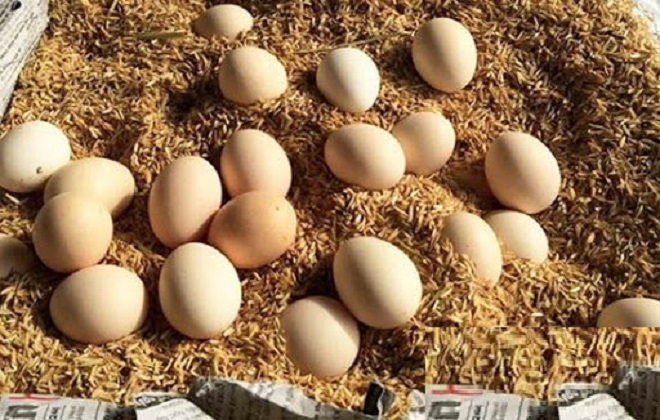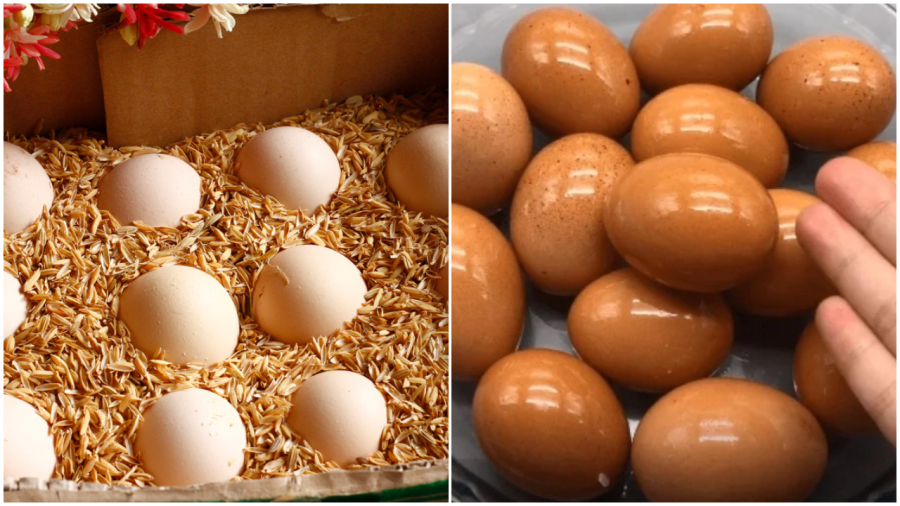Storage in Lime Water Jars or Bottles
One way to preserve eggs is to keep them submerged in lime water, ensuring they remain intact. This simple method involves placing eggs in a clean jar or bottle and pouring a 2-3% lime water solution over them, making sure the liquid level is about 20cm above the eggs. This technique can keep eggs fresh for up to a year.
Storage in Dry Rice Husk or Sawdust
Spread a layer of clean, dry rice husk at the bottom of a container, then carefully arrange the eggs and repeat the process until the container is full. Finally, seal the container and store it in a cool, dry place. This method can keep eggs fresh for several months.

Tips for Storing Eggs Without Refrigeration
Storage in Fine, Dry Salt
A traditional method passed down through generations involves layering eggs and fine, dry salt in a wooden container. Make sure to fill any gaps between the eggs with salt.
Storage in Rice or Wheat Bran
Another tip for preserving eggs is to use rice or wheat bran. Spread a thick layer of bran at the bottom of a container, arrange the eggs on top, and then cover them with another thick layer of bran. Repeat this process until the container is full, seal it, and you can store the eggs for up to 4-6 months.
Storage Using Boiling Water
To preserve eggs without a refrigerator, quickly dip them in boiling water for about 30 seconds. Be careful not to overcook them. Then, place the eggs in fine ash or charcoal and press gently. This method helps extend the shelf life of eggs.

Egg Preservation Tips
Storage in Tea Leaves
Bury the eggs in dry, clean tea leaves and store them in a well-ventilated area. This method can keep eggs fresh for 2-3 months.
Coating Eggs with Vegetable Oil
You can try coating the eggs with vegetable oil, which can preserve them for over a month when stored at the right temperature (between 25-32°C).
Wrapping Eggs in Plastic Wrap or Nylon
Another way to store eggs without refrigeration is to wrap them in plastic wrap or nylon. Make sure to wipe the eggs clean with a dry cloth before wrapping, and then store them in a cool, dry place for long-term preservation.

































